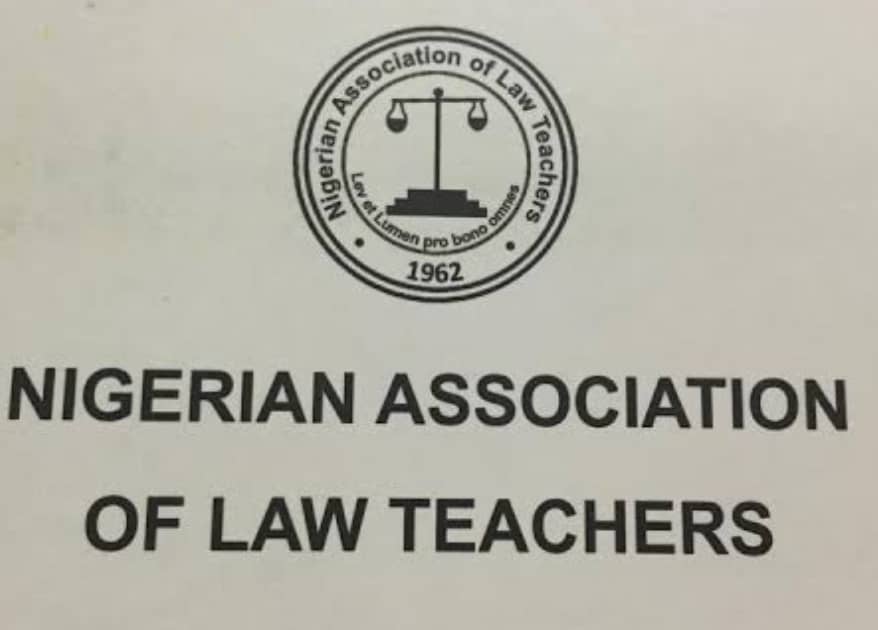NIGERIAN ASSOCIATION OF LAW TEACHERS (NALT) AT THE CROSSROADS: A SURREJOINDER TO BETHEL IHUGBA’S REJOINDER ON NALT’S MANDATE, FOCUS AND ACTUAL PERFORMANCE
By Sylvester Udemezue
(1). INTRODUCTION
This surrejoinder responds to Dr Bethel Uzoma Ihugba’s rejoinder to my earlier commentary, “The Nigerian Association of Law Teachers and the Persistent Disdain for Its Own Business, Objectives and Mandate.” While commending Dr Ihugba’s civility, good faith and desire for dialogue, this piece argues that his defence of NALT rests on a misdirected evaluative standard, substitutes activity for achievement, and sidesteps the structural deficiencies that continue to impede NALT’s relevance to legal-education reform in Nigeria.
I reaffirm that NALT’s chronic misalignment between its constitutional objectives and its conference agenda reflects a deeper institutional drift. Unless NALT realigns itself with its statutory purpose (promoting legal education, strengthening pedagogy, and improving the welfare and professional development of law teachers), its conferences risk becoming intellectually vibrant yet institutionally inconsequential.
Dr Ihugba’s rejoinder misdiagnoses the thrust of my critique. My argument was not that NALT lacks activities, but that its activities lack alignment with its core mandate. Then, by equating the mere hosting of paper presentations or inter-faculty networking with fulfilment of NALT’s objectives, Dr Ihugba’s rejoinder reduces the Association’s mandate to minimal compliance. This surrejoinder respectfully maintains that what is at stake is not whether NALT does something, but whether NALT does what it was established to do: lead, coordinate, influence and elevate legal education in Nigeria.
(2).MANDATE, MISALIGNMENT AND THE WRONG STANDARD OF EVALUATION
The rejoinder repeatedly claims that I “introduced new objectives” for NALT. With due respect, this is completely inaccurate. Every issue I identified falls squarely within the objectives set out in the Constitution of the Nigerian Association of Law Teachers: ranging from promotion of excellence in law teaching to engagement with stakeholders on the development and quality of legal education. My argument was that NALT has not been attending to these very objectives. To illustrate: (a). If NALT was founded to promote legal education, should its conferences consistently ignore issues affecting legal education? (b). If NALT exists to promote the welfare and standards of law teachers, should it remain silent on brain-drain, teacher attrition, poor working conditions, and academic excellence and ethics? (c). If NALT is constitutionally mandated to engage stakeholders, should there be no visible record of sustained engagement with the NUC, CLE, NBA, National Assembly or judiciary, the Executive on issues affecting NALT members and promotion of legal education generally? It is therefore incorrect to say I set a new examination question; I simply asked NALT to be evaluated by the same questions it set for itself. A simple search shows that the Nigerian Association of Law Teachers (NALT) is “a professional body… established in 1961 [to] represent the interests of law teachers in Nigeria, to promote excellence in research and legal academic teaching in Nigeria, [and to] aid in promoting government policies and practices related to legal education and research.”
(3). THE QUESTION OF FOCUS: CAN A HOUSE ON FIRE CHASE RATS?
My central thesis remains: a professional body must first address its own sectoral challenges before consistently dabbling in unrelated national issues. Unfortunately, nothing in Dr Ihugba’s rejoinder addresses this. NALT has, in successive conferences, prioritised topics such as elections, sovereignty, constitutionalism and tax reform, etc; topics undoubtedly important but not central to NALT’s raison d’être. Meanwhile, the acute problems plaguing Nigerian legal education (including curriculum stagnation, absence of teaching standards, inadequate teacher welfare, weak and absence of pragmatic research culture, poor infrastructure, declining ethics and standards of teaching and learning, neglect of law teachers and legal education, and low quality synergy with relevant regulatory bodies, among others) rarely appear on conference agendas.
Again, respectfully, Dr Ihugba’s rejoinder’s repeated insistence that “law teachers should be allowed to present papers on any topic” misses the fundamental point. Freedom of research does not eliminate institutional responsibility. A body created to promote legal education cannot substitute intellectual tourism for sectoral leadership.The argument that “at least papers are presented” confuses movement with direction, and activity with performance. A conference that avoids its own constituency’s challenges cannot claim to be fulfilling its mandate.
(4). NALT VERSUS ITS LEADERSHIP: A DISTINCTION WITHOUT A DIFFERENCE
Dr Ihugba attempts to separate NALT from its Executive Officers, suggesting that criticisms should be limited to EXCO, not the Association. This is, with due respect, conceptually untenable. Associations act through their leadership. Conferences are organised by leadership. Agendas are set by leadership. Engagements with stakeholders are undertaken by leadership. If EXCO fails to act, NALT has failed to act. To argue otherwise is to deny the organisational structure of professional associations.
(5). THE “OPPORTUNITY” ARGUMENT AND THE PROBLEM OF IRRELEVANT CONFERENCES
Dr Ihugba’s rejoinder repeatedly celebrates NALT conferences as “opportunities” to: (a). present papers “irrespective of topic,” (b). collaborate, (c). network, and (d). co-author articles. These are indeed valuable, but they cannot replace NALT’s constitutional responsibilities. If conferences present no papers on legal pedagogy, curriculum reform, teaching methods, quality assurance, academic ethics, welfare of law teachers and students, or the regulation of legal education, crucial questions that immediately arise include: (i). How are we promoting excellence in teaching? (ii). How are we fostering improved standards? (iii). How are we influencing national policy? (iv). and How are we shaping the future of legal education? Unfortunately, Dr Ihugba’s rejoinder made no attempt to provide answers to these. The rejoinder’s logic is that any topic satisfies NALT’s objectives. This is, with due respect, unsustainable. Topics unrelated to legal education cannot promote the teaching of law. A conference on election petitions or tax reform cannot directly improve pedagogy or welfare. This is the very definition of loss of focus.
(6). STAKEHOLDER ENGAGEMENT: A MANDATE NEGLECTED
The NALT Constitution mandates the Association to “engage meaningfully with stakeholders on issues affecting the development, regulation and quality of legal education.” Dr Ihugba concedes that conference assessment alone is insufficient but provides no evidence of: (i). engagement with NUC/CLE/NLS/etc on curriculum review, (ii). engagement with CLE on the BML programme, (iii). engagement with NBA on CPD standards, (iv). engagement with universities on minimum teaching standards, and (v). engagement with the National Assembly, the Executive , and other stakeholders on legislative reforms to legal education, law teachers welfare, legal education standards, poor infrastructure and low funding, etc. The rejoinder does not identify a single documented stakeholder intervention by the current or recent NALT leadership. Thus, the central question persists: If not at the conference, and not outside the conference, when and where does NALT confront the challenges of legal education?
(7) THE PROBLEM WITH THE “65 PERCENT SCORE”
Dr Ihugba’s claim that NALT deserves a “65%—a B” is unsubstantiated. A credible grade requires measurable indicators: (i). Teacher-welfare interventions, (ii). Curriculum-review outputs, (iii). Capacity-building programmes, (iv). Policy papers influencing national regulation, (v). Institutional synergy with CLE/NUC/NBA, etc, (vi). Structured feedback mechanisms, (vii). Implementation of the Blue Book’s pedagogical guidelines. No metrics are provided. No evidence is offered. With due respect, Dr Ihugba’s grading is a mere unsubstantiated subjective opinion, not an objective analysis
(8). A REJOINDER THAT UNWITTINGLY CONFIRMS THE ORIGINAL THESIS
With due respect, Dr Ihugba’s rejoinder contains several internal contradictions that ironically validate my initial critique: (a). The rejoinder claims NALT conferences cannot solve sectoral problems, but admits they can “harvest ideas” to do so; (b). It claims NALT has no role where laws already exist, but concedes NALT can “help put issues on the agenda;” (c). It claims I set new objectives, yet fails to show how any issue I raised falls outside the objectives of NALT as set out in its constitution; (d). It argues NALT focuses on research, while admitting conferences do not address legal education. Accordingly, every contradiction in the rejoinder reinforces my point, namely – NALT has drifted from its mandate and needs institutional reorientation.
(9). REFORM, NOT RITUALS: WHAT NALT MUST DO
Process-level improvements (such as newsletters, better Blue Book compliance, and AGM reports) are constructive but insufficient. What NALT needs is structural reform: (i). Reorient conference themes around legal education, pedagogy, teacher welfare and academic standards, ethics, etc; (ii). Institutionalise stakeholder engagement with CLE, NUC, NBA, the judiciary, the federal government and other critical stakeholders; (iii). Strengthen EXCO tenure to ensure continuity of reforms; (iv). Introduce annual policy (assessment/evaluation) statements on the state of legal education; (v). Establish a Research Committee on legal pedagogy and curriculum innovation; (vi). Ensure as a rule that at least 70%–80% of the papers presented at NALT conferences relate directly to NALT’s objectives and efforts towards resolving the challenges facing legal education in Nigeria. Without such changes, NALT will continue to operate as an intellectually stimulating but institutionally ineffective association.
(10). CONCLUSION: THE NEED FOR AN ANNUAL GENERAL CONSCIENCE
My thesis remains intact. With due respect, Dr Ihugba’s rejoinder has not dislodged it. The REALITY is that NALT cannot continue to ignore its core mandate, celebrate irrelevant achievements, and still claim institutional success. Until NALT transforms its Annual General Conference into an Annual General Conscience (a forum for reflecting, evaluating and driving reform), the Association risks becoming a body with eloquence but no influence, activity but no achievement, conferences without positive consequence. Ayn Rand’s observation that “We can ignore reality, but we cannot ignore the consequences of ignoring reality” reminds us that avoiding the truth does not shield us from its effects. Growth and sound judgment require that we confront reality rather than deny it, because denial only postpones inevitable repercussions. Arthur Schopenhauer also noted that every truth passes through three stages: first, it is ridiculed; second, it is fiercely opposed; and finally, it is accepted as self-evident. In any case, I believe I have made my point. As Anne Tyler wisely remarked, “It is very difficult to live among people you love and hold back from offering them advice.”
Respectfully,
Sylvester Udemezue (udems),
Legal Practitioner, Law Teacher, and Proctor of The Reality Ministry of Truth and Justice (TRM).
Tel: 08021365545.
Email: udems@therealityministry.ngo.
Web: www.therealityministry.ngo.
(13 November 2025)
REFERENCES
1. Constitution of the Nigerian Association of Law Teachers (2018 rev)
2. ibid.
3. NALT, Manual on Legal Research and Writing (Blue Book, 2022).
4. GJ Warnock, The Object of Morality (Methuen & Co Ltd, 1971) ch 5.
5. R Yin, Case Study Research and Applications (Sage 2018) 82–84.
6. S Udemezue, ‘NALT and the Persistent Disdain for Its Own Mandate’ (2025) The Reality Ministry.
The end



